25 years of UCU
‘It is a place where people share an eagerness to learn’
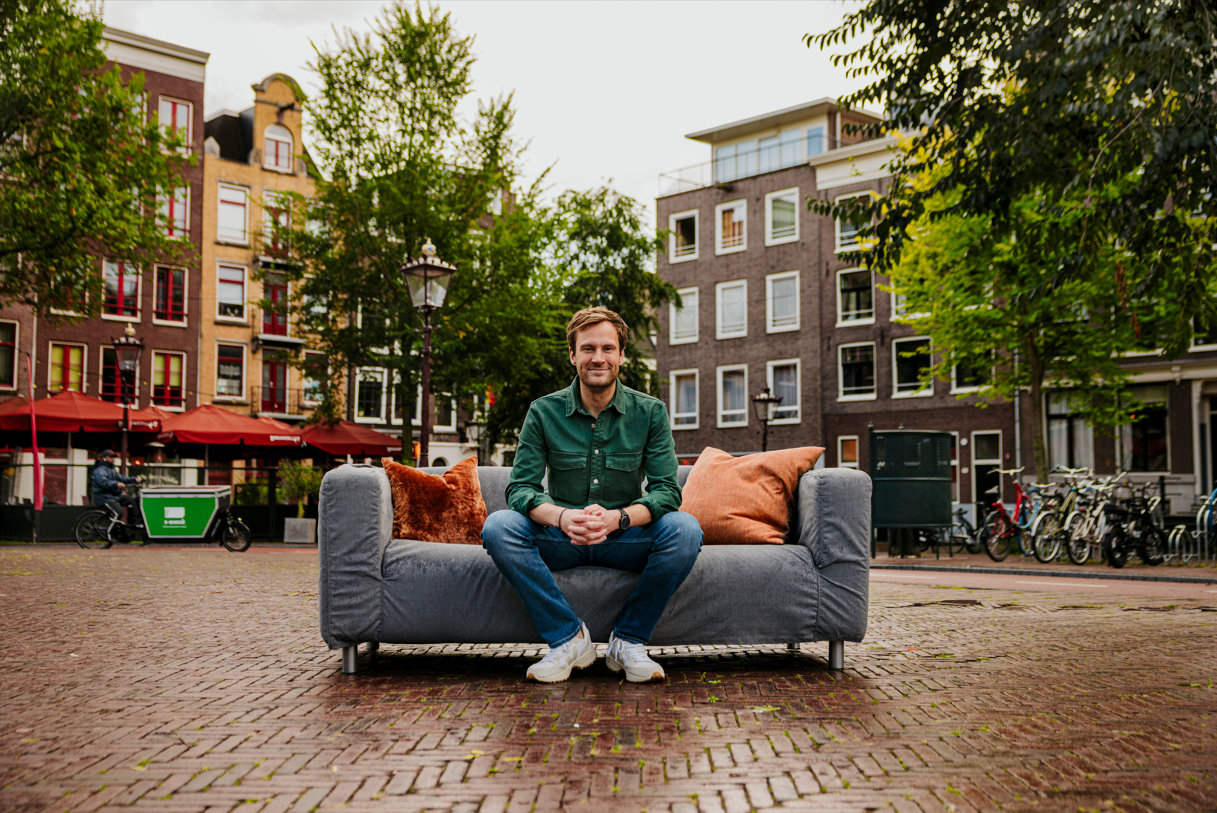
An inspiring place where highly-motivated young adults are given time and space to pursue various interests, and where friendships are made for life. That’s how Roel Maalderink, Sjoerd Sjoerdsma, Pjotr Sauer, and Joyce Browne define their alma mater. UCU is celebrating its 25th anniversary in style, with lectures, workshops, music, drinks and an outdoor movie screening.
UCU was the first Liberal Arts & Sciences programme in the Netherlands, offering students the opportunity to compose their curriculum freely by choosing from over 200 courses, all while living on campus in a close-knit community. There are successful UCU graduates in all sorts of fields, both in the Netherlands and abroad (the programme is known for attracting a considerable number of international students). Maalderink, Sjoerdsma, Sauer and Browne are but four of them, and they exemplify the wide range of careers one can follow after obtaining a UCU diploma.
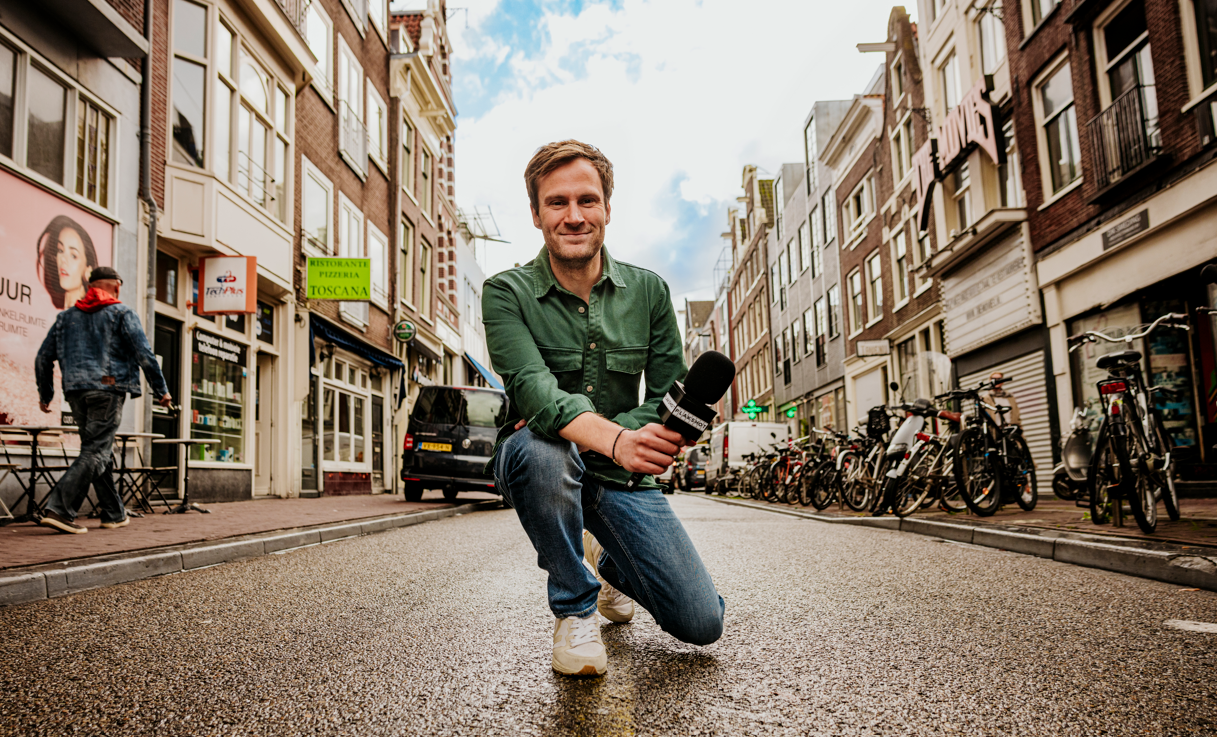
Photo by Rosa Quist, courtesy of Roel Maalderink.
Roel Maalderink (32), host of the TV show Plakshot on NPO3
Class of 2014
Maalderink became known for his satirical endeavours in the media, such as the podcast version of De Speld (the Dutch equivalent to The Onion) and the series Voxpop, in which he interviews passersby about topics like freedom of speech and the Palestine conflict, showing that people don’t refrain from giving an opinion about subjects they are not familiar with. Today, he stars in Plakshot, a comedy show with street interviews, parodies, and sketches written by himself and his team. In 2021, the newspaper De Volkskrant named him the Media Talent of the Year.
Considering his resumé, it doesn’t come as a surprise that some of Maalderink’s fondest memories of UCU involve jokes and pranks. “A friend of mine once brought this huge slingshot from America and we would throw water balloons all across campus. We ended up breaking a window but luckily no one found out who it was,” he recollects. On another occasion, he and his friends put huge speakers on their balconies and then played YouTube playlists with bombing or orgasm sounds, at full volume. “We also hid a Playboy magazine in between the academic literature and hid a friend’s bed outside the building so that he would look puzzled when coming back to his room.”
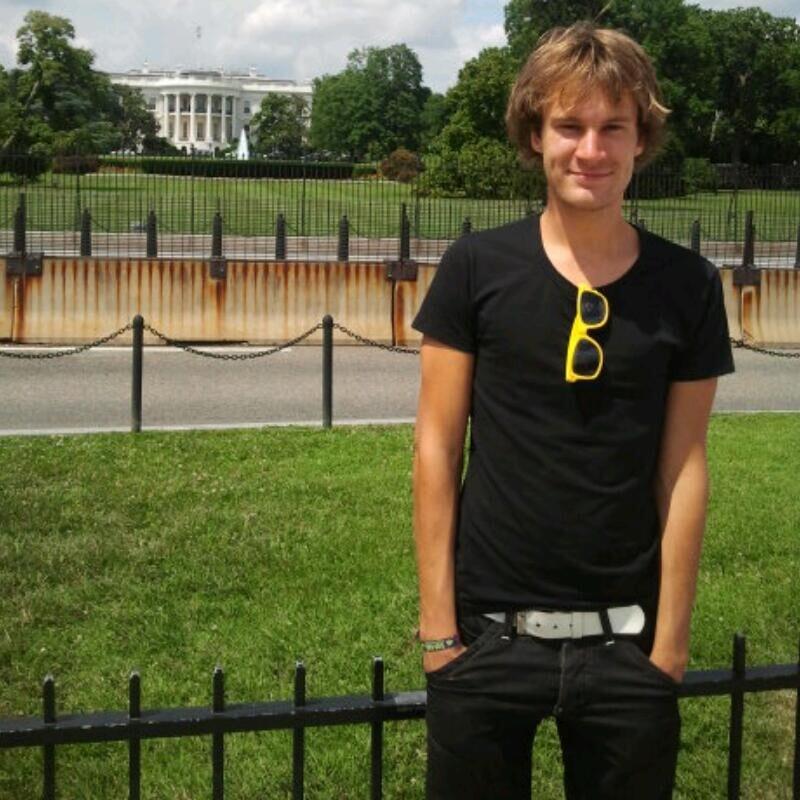
Photo: Roel Maalderink in 2012, when he was a student at UCU. Photo: courtesy of Roel Maalderink
But it wasn’t all fun and games: UCU was also a lot of work. But that was actually one of the things that attracted him to the university college in the first place. Maalderink, who didn’t know what to study after high school, was turned off by open days in which people were “kind of bragging about how little time they spent at university. UCU’s open day was inspiring because people were eager and ambitious.” He took courses in the Social Sciences, Psychology and Law, later specialising in the latter with a Master’s in Information Law at the University of Amsterdam.
He says his UCU degree “definitely” helps him with his comedy work. “After all, Pakshot and Voxpop cover broad topics, from tax evasion to LGBTQ+ rights.” The fact that he’s still in touch with a lot of people he met at UCU comes in handy as well. “My friends are in all sorts of fields while most people in their 30s have a circle of friends in which almost everyone studied the same thing. I have friends in blockchain, politics, Medicine...”
The Philosophy courses he took proved useful when doing street interviews as his questions often follow a Socratic method. “It’s a way to debunk clichés that people tend to repeat without thinking much. It’s a lot better when we debunk them together. That’s a great way to contribute to the societal debate and also very satisfying to me, personally. Sometimes I am approached by teachers saying that they use my videos in the classroom.”
Maalderink cycled past UCU recently and saw a lot of rainbow flags due to Pride Month. “It’s nice to see that it’s still quite a progressive place. Plus, the campus is so nice. I heard they will have to move house soon. What a shame!”
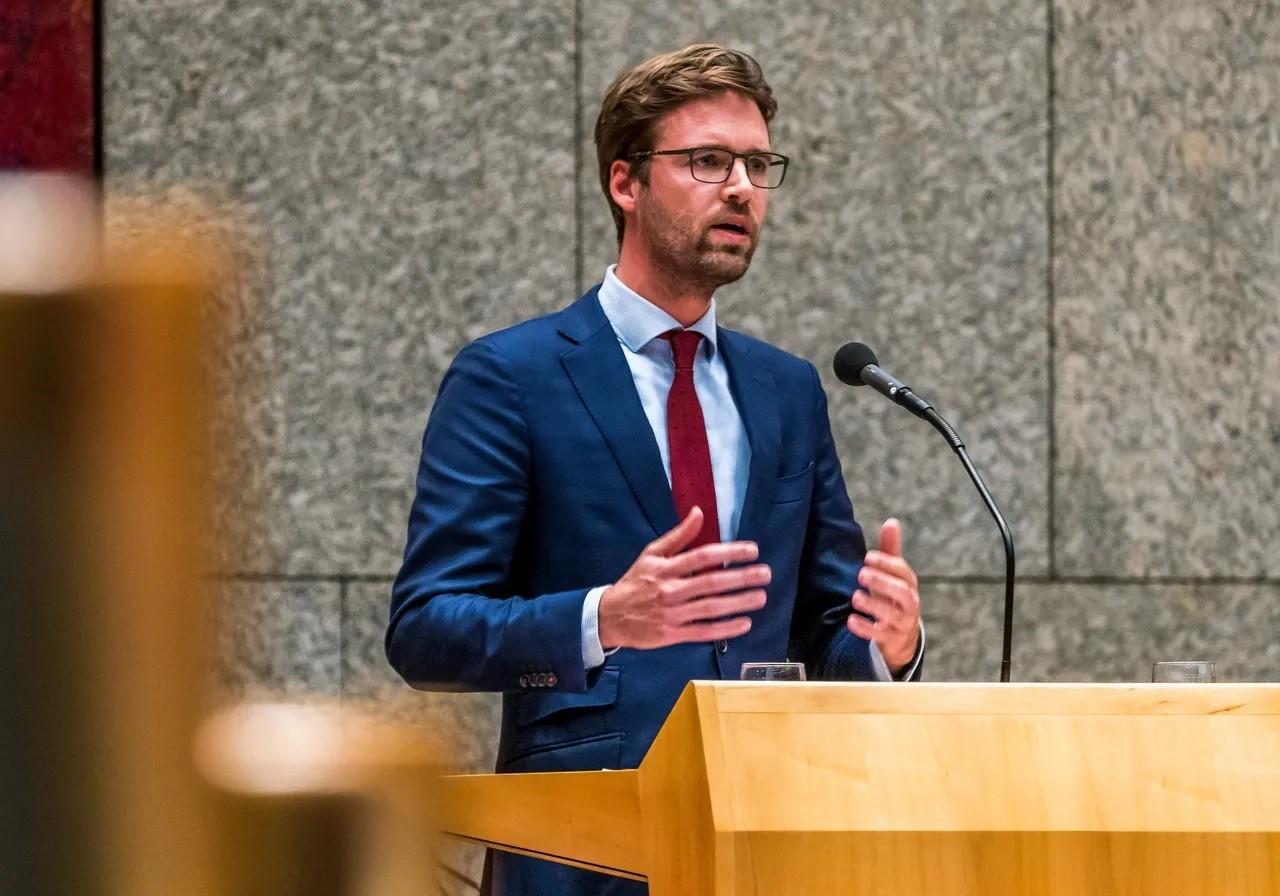
Photo: courtesy of Sjoerd Sjoerdsma
Sjoerd Sjoerdsma (41), Member of the Dutch Parliament (D66)
Class of 2002
Who would have thought that Sjoerdsma, who has been a member of Parliament since 2012 after several years of diplomatic work, actually considered working in film and theatre when he was younger? “You know what they say: politics is cinema for ugly people,” he answers with a laugh.
Truth be told, that wasn’t the only option he was considering: Aeronautical Engineering and History also sparked his interest. Like Maalderink, he too was attracted by the idea of a college where people are selected based on motivation. “I was actually visiting UU with my dad when I saw a poster that said something like ‘blood, sweat and tears,’ promising students a weekly workload of at least 55 hours. I thought: ‘What an unusual way to advertise a college’. Coincidentally, their open day was happening at the exact same time, so we went there.”
Once at UCU, he combined classes in Sociology, Journalism and History. “I soon became intrigued as to why states decide to do things on the world stage.” He followed his UCU degree with a Master’s in International Relations in London, a decision that was highly influenced by UCU’s internationally-oriented environment. “I come from Limburg, where the level of foreign influence at high school is pretty low. UCU showed me that my window to the world was different from that of my classmates from Eastern Europe or China.” Being open to other perspectives proved useful when working as a diplomat in countries in conflict such as Afghanistan, Sudan and the Palestinian territories, as well as in his current job. As an MP, he also focuses on international affairs.
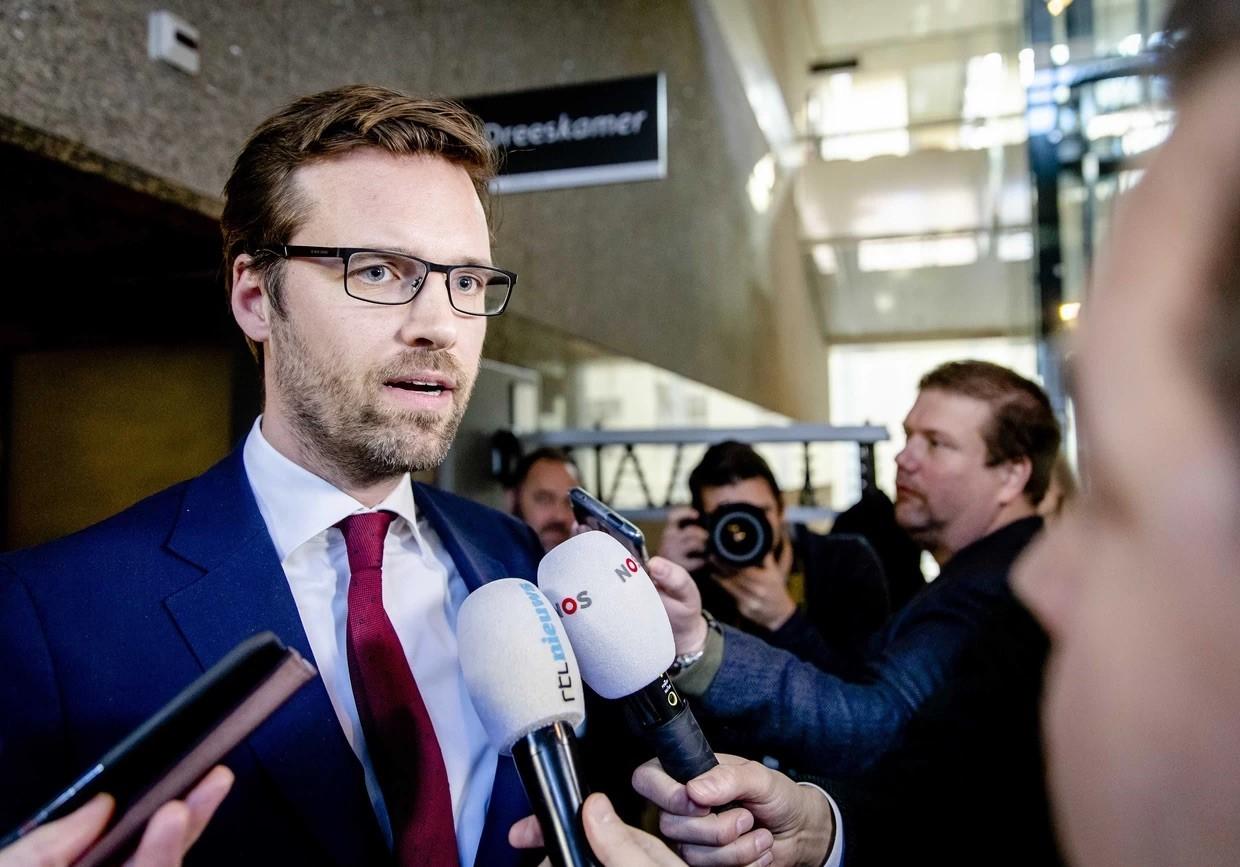
Photo: courtesy of Sjoerd Sjoerdsma
Did he already envision becoming a politician during his UCU days? “Not at all!” he says. “But I guess I could say that my political awakening started there. Dutch politician Pim Fortuyn got shot when I was a student, 9/11 happened when I was a student… These events triggered a lot of interesting discussions.” Sjoerdsma says he decided to run for Parliament much later, after getting tired of seeing “relatively old men with dandruff on their dark suits claiming that they would solve the problems of my generation. But they were not paying enough attention to education, the climate, or the housing issue. I realised I could either become a person who complains about politics at the pub or I could try to change it from the inside.”
Asked to share his fondest UCU memory, he underscores that UCU is a place “where you really make friends for life. There is this sense of family because we do everything together. We study together, practice sports together, have dinner together… And then there are these father figures on campus, such as housemaster Maarten (Diederix, Ed.).” According to him, this sense of family extends even to those you never met. During his first campaign, Sjoerdsma participated in a political debate at the UCU auditorium, alongside much more experienced candidates. “I was a complete newbie but, every time I said something, there would be a round of applause just because I came from UCU.”
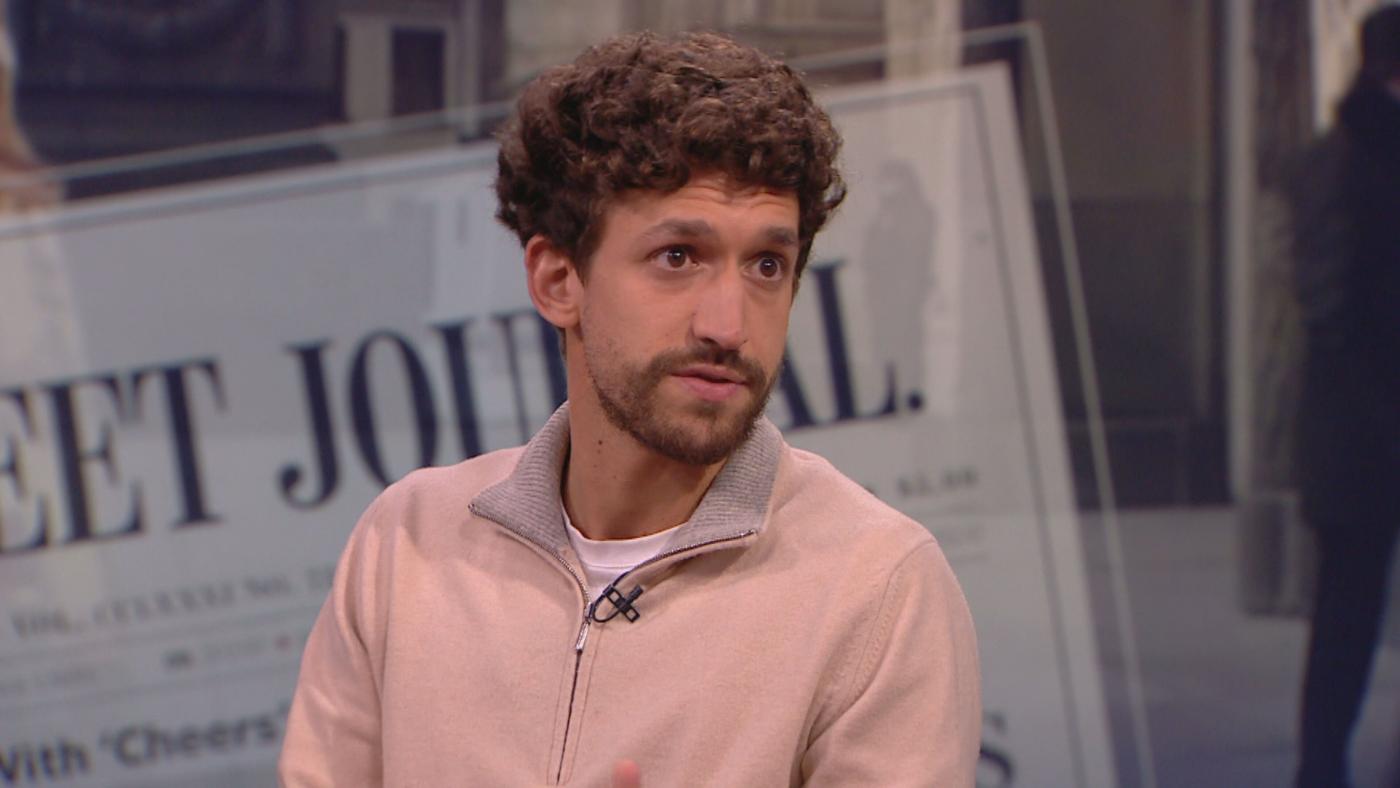
Photo: screenshot from Nieuwsuur
Pjotr Sauer (30), Russian affairs reporter for The Guardian
Class of 2015
As a correspondent for The Guardian in Moscow, Sauer never had a dull moment. But things became a lot more intense when Russia invaded Ukraine. “It’s been almost nonstop work ever since. Although it gives you a lot of energy to be writing the biggest story in the world right now, it’s been hard to switch off and live a normal life separately from my work.” He says the heavy workload at UCU proved to be beneficial for his current job, in which he also has to write a lot.
The war broke out four years into his career in journalism, when Sauer was already confident in his skills. In the beginning, imposter syndrome hit him hard. He would compare himself to more experienced colleagues and wonder whether he was cut out for the profession at all. Although both his parents are journalists, as a student he never imagined he would take that direction. “Most of my coursework was Russia-related because I grew up in the country and I’m really interested in it. I never wrote for local newspapers or anything. I even did internships at the Dutch Ministry of Foreign Affairs and at a consultancy firm. But the moment I tried journalism, I realised that is the most exciting career in the world. By far.” What he loves about it is the opportunity to meet people from all walks of life. “One day you interview a minister and the next day you interview a Russian mercenary prisoner fighting in Ukraine. You get to really delve into human nature.”
Today, his biggest challenge is dealing with human suffering on a daily basis. “It’s very hard. The sources you talk to die. My best friend, the journalist Evan Gershkovich from the Wall Street Journal, has been arrested on bogus espionage charges. Also, being on the ground in Ukraine and seeing all the suffering first-hand is not easy. But you need to keep on working because the story needs to be told.” Sauer had to flee Moscow in a hurry himself because he didn’t feel safe anymore. He is living in the Netherlands again. “My life was changed completely. I had to leave with only two bags on me and get used to the fact that I might never be able to return. But I try to put things into perspective: I have a safe and comfortable life in Amsterdam, while people in Ukraine are getting bombed.”
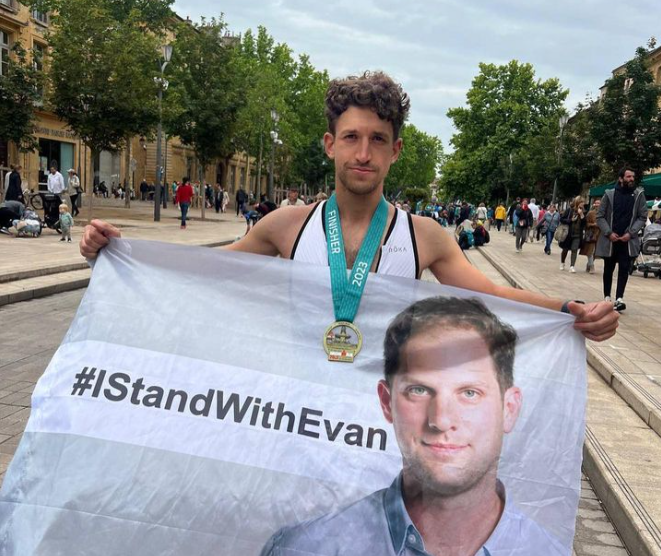
Pjotr Sauer protests against the detention of his friend, the journalist Evan Gershcovich, during a triathlon competition in France. The two of them used to run together. Photo: Pjotr Sauer's Instagram
Going to UCU was a big decision for Sauer, who had already been studying Sociology and Sports Science in England. “But I found the UK system quite constraining. I didn’t like having to choose a track early on. Although I had never lived in the Netherlands, I am Dutch and I knew a lot of people who went to UCU and were raving about it. So, I flew over to check out their open day. Making the switch meant losing a year of studies but it was worth it.” After his studies, he moved back to England for a Master’s in Russian and Post-Soviet Politics at University College London. He recommends specialising in something at the Master’s level, especially for those looking to be journalists. “Find your niche. Pick something you know a lot about. From there, you can expand later on to broader reporting. But it’s important to show how you can stand out.”
When DUB spoke with Sauer, he’d just come back from Italy, where he attended the wedding of a former UCU classmate alongside other friends from the time. “We were all talking about how great it was. It was such a privilege to be able to see your friends at any moment of the day. As you grow older, it gets harder and harder to meet with people. Of course, living together on such a small campus can be intense sometimes but the friendships you make there are very strong.”
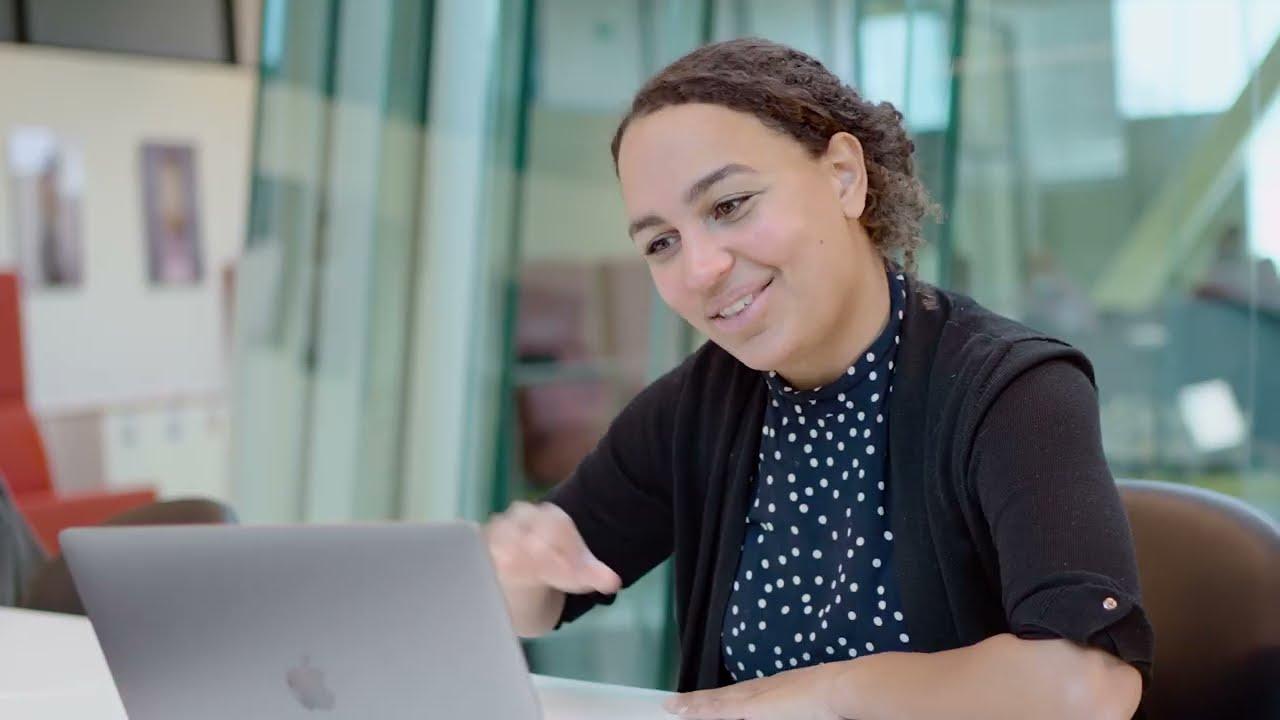
Photo: Utrecht University
Joyce Browne (36), Associate Professor of Global Health at UMC and Medical Sciences Fellow at UCU
Class of 2008
Through her work, Browne aims to reduce health inequities between and within populations. One of her lines of research is how to improve healthcare for pregnant women with high blood pressure in Ghana. She also supervises PhD students working on maternal health in other countries. Another line of work delves into equitable partnerships in global health and planetary health, an approach to Medicine that takes into account how human health is shaped by the ecosystems and climate we live in. At UCU, she is responsible for the Biomedical Sciences ('Pre-Med') track, also teaching courses on Global Health and Public Health.
“I’m very fortunate to be able to say that my values coincide with what I do for a living. My values are strongly anchored in equity and justice: how we can shape a world that provides everyone with an opportunity to be healthy and thrive,” she says.
At seventeen, she was rather frustrated when attending open days for Medicine programmes. “I remember thinking to myself: ‘I’m happy that this exists but it is not what I’m looking for because I enjoy understanding how the human body works but I also like to understand how society works. I wanted to combine Political Sciences with Biomedical Sciences and that was just impossible to do in one city. So, I was really happy when I was advised by my secondary school dean to look into UCU.”
Today, Browne always tries to convey to her students that it’s okay not to know exactly what you want to do at 18. “It actually makes a lot of sense. You have not experienced that many things yet. So, just embrace the uncertainty and trust that, with a good foundation, it will become clear at some point. As long as you acquire transferable skills, you will be fine. The rigour with which you learn how to write an essay at UCU is helpful in any field, for example.”
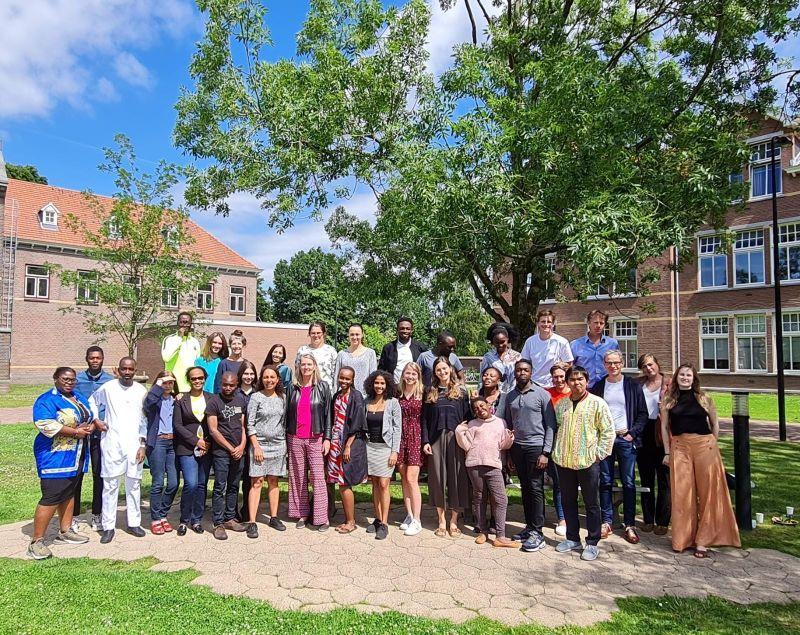
Photo: Joyce Browne and the students of the Global, Maternal, Newborn and Child Health summer school, held at UCU in 2022. She is the eighth person, from left to right, standing in the front.
Like her fellow UCU alumni Maalderink, Sjoerdsma and Sauer, Browne says that UCU’s international environment and focus on motivation were plus points for her. “I loved the idea of living on campus with a diverse set of people who are eager to learn. That’s actually a powerful slogan to describe UCU: people who share an eagerness to learn. I was looking for a place where that was the default instead of the exception.”
Another definition she likes to use is “a playground for learning different topics”, something she’s come to appreciate more and more over the years. “Society is asking everyone to navigate and deal with uncertainties. Climate change, growing political instability, misinformation and disinformation, lifting people out of poverty… All of these challenges are interconnected and require you to be familiar with a diversity of skills, collaborate across different disciplines, and understand that what you hold in terms of information and the truth is only part of a larger puzzle that we need to lay together as a society.”
To her, the only disadvantage of a Liberal Arts & Sciences degree is “having to explain it to people and show them that you’re sufficiently grounded in your discipline while also studying other things.” It also required her to adapt to a different way of studying when she moved on to a Master’s in Social Epidemiology in London, her post-graduate Medical Studies at UU, and her PhD in Clinical Epidemiology also at UU.
Although the eagerness to learn is the same, Browne has noticed a few changes between the UCU students of her time and the ones she teaches now. According to her, the quality of essays has diminished somewhat in recent years. “I'm not able to completely pinpoint why but I think it has to do with Covid, possible changes in academic skills training, and social media, which is competing for student's attention. Going through their formative years during the Covid lockdowns may have reduced their opportunity to be trained in a similar way.” In addition, “students today care a lot about social justice issues and they bring this into the classroom in a very outspoken way, which is forcing lecturers to adapt. But for my field of work, Global and Planetary Health, which are both deeply linked with structural equity and justice issues, this is hopeful rather than a source of frustration!”